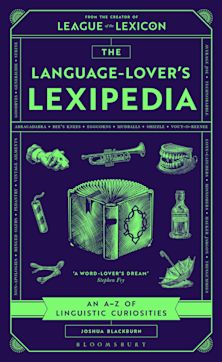- Home
- NON-FICTION
- Literary Non-Fiction
- Starwatchers
You must sign in to add this item to your wishlist. Please sign in or create an account
Description
'An exhilarating exploration of how we've been touched by the cosmos across human history' LEWIS DARTNELL
'Combines scientific expertise with vivid storytelling and a childlike wonder that shines on every page' TIMES LITERARY SUPPLEMENT
What draws us to the night sky and how can we make sense of all that lies there?
In this unique synthesis of science and culture, former astrophysicist and writer Joanne Baker charts the global history of humanity's relationship with the cosmos. Starting with the nearby Moon before venturing through the solar system to the stars and beyond, she unveils a rich mosaic of stories and research that illuminate the significance of celestial bodies in our everyday lives.
It is a history that transcends borders and cultural traditions, taking us from Mesopotamian moon worship to the science fiction of H. G. Wells and the discovery of black holes. Driven by a personal quest to understand the universe as more than just an abstract mathematical realm, Baker also includes her own sparkling first-hand experiences – from watching a total solar eclipse in Idaho to visiting an ancient observatory in Samarkand.
Starwatchers invites readers on an extraordinary journey through space that interrogates the boundaries of our earthly existence and encourages us to reflect on how we project meaning onto the skies.
Product details
| Published | 12 Mar 2026 |
|---|---|
| Format | Paperback |
| Edition | 1st |
| Extent | 272 |
| ISBN | 9781526608017 |
| Imprint | Bloomsbury Publishing |
| Dimensions | 198 x 129 mm |
| Publisher | Bloomsbury Publishing |
About the contributors
Reviews
-
Baker leads us on an exhilarating exploration of the other worlds of our solar system, and the distant stars and galaxies beyond. From the royal stargazers of ancient Babylon to the space probes and orbital telescopes of today, this is the fascinating story of how we've been touched by the cosmos across human history. My head is still reeling!
Lewis Dartnell, author of BEING HUMAN
-
Humans understand the universe better now than at any point in our history. But as Joanne Baker reminds us, our knowledge of celestial bodies is as dependent on our own stories as it is on the laws of mathematics and physics. The messages of the cosmos matter to us, so we map the night sky and chart its denizens - and in doing so, we imbue those objects with meaning, connecting them to our own places in our own times. Starwatchers is a friendly, contemplative journey through the history of science, illuminating how astronomy connects us to the stars, but also to each other
Rebecca Boyle, author of OUR MOON
-
A thoughtful blend of science and history ... Carries worrying warnings about what humans are doing in space today
Martin Chilton, Independent
-
Tenderly written, it's one of those books that has the precious virtue of making the familiar interesting all over again
Unseen Histories
-
Delightful ... [Baker] doesn't just recite what we have learned about the universe; she tells the stories of the starwatchers, people past and present, of many different cultures, whose work we use today when we try to understand the things in the sky ... It's great fun to read about what our ancestors expected to see in the stars. And it helps us in our own work to recognise and account for our own hopes and fears
The Tablet
-
Combines scientific expertise with vivid storytelling and a childlike wonder that shines on every page ... By exploring every aspect of "what draws us to the heavens and how can we as humans make sense of all that lies there?", Baker weaves stories of science, imagination and belief into a cosmic journey that leaves you breathless - just as if you had contemplated the night sky itself
Times Literary Supplement


































